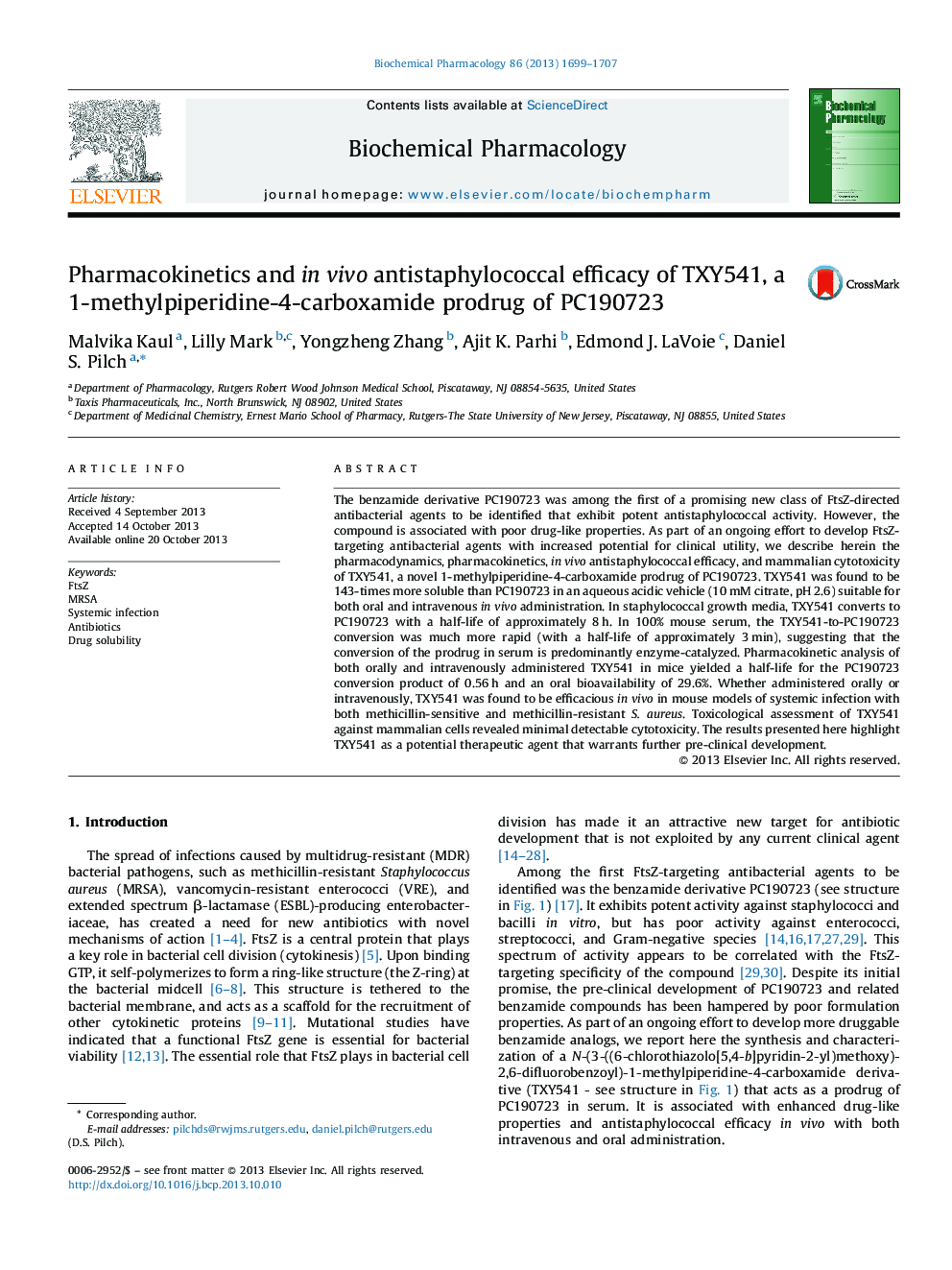| Article ID | Journal | Published Year | Pages | File Type |
|---|---|---|---|---|
| 2512281 | Biochemical Pharmacology | 2013 | 9 Pages |
The benzamide derivative PC190723 was among the first of a promising new class of FtsZ-directed antibacterial agents to be identified that exhibit potent antistaphylococcal activity. However, the compound is associated with poor drug-like properties. As part of an ongoing effort to develop FtsZ-targeting antibacterial agents with increased potential for clinical utility, we describe herein the pharmacodynamics, pharmacokinetics, in vivo antistaphylococcal efficacy, and mammalian cytotoxicity of TXY541, a novel 1-methylpiperidine-4-carboxamide prodrug of PC190723. TXY541 was found to be 143-times more soluble than PC190723 in an aqueous acidic vehicle (10 mM citrate, pH 2.6) suitable for both oral and intravenous in vivo administration. In staphylococcal growth media, TXY541 converts to PC190723 with a half-life of approximately 8 h. In 100% mouse serum, the TXY541-to-PC190723 conversion was much more rapid (with a half-life of approximately 3 min), suggesting that the conversion of the prodrug in serum is predominantly enzyme-catalyzed. Pharmacokinetic analysis of both orally and intravenously administered TXY541 in mice yielded a half-life for the PC190723 conversion product of 0.56 h and an oral bioavailability of 29.6%. Whether administered orally or intravenously, TXY541 was found to be efficacious in vivo in mouse models of systemic infection with both methicillin-sensitive and methicillin-resistant S. aureus. Toxicological assessment of TXY541 against mammalian cells revealed minimal detectable cytotoxicity. The results presented here highlight TXY541 as a potential therapeutic agent that warrants further pre-clinical development.
Graphical abstractFigure optionsDownload full-size imageDownload as PowerPoint slide
